
By: Kavan Sohal Dec 4/2024
Artificial Intelligence (AI) has rapidly evolved from a sci-fi concept to a transformative force shaping our world. No longer confined to the imaginations of authors or filmmakers, AI is now a powerful tool redefining how we live and work—and this is just the beginning.
One major milestone in AI’s rise was the launch of tools like ChatGPT, which have revolutionized daily life and professional workflows. Yet, what we’ve seen so far is merely scratching the surface of AI’s potential.
This impact has been particularly felt in digital marketing. As marketers navigate the ever-changing algorithms of platforms like Google, AI has simultaneously simplified some processes while introducing new complexities, especially regarding SEO. We’ve broken down the top 5 AI tools to help SEOs stay ahead of the curve for you, here.
Cost: Freemium (Free version + Paid version)
As the godfather of the AI revolution, Chat-GPT (along with platforms like Google Gemini) can do just about anything for marketers—though how well it does depends on how effectively you prompt it. We’re kind of cheating here by grouping Chat-GPT and its counterparts together, but given their similarities, it makes sense to treat them as one category. These tools are the ultimate “jack of all trades” when it comes to marketing. Whether it’s brainstorming keyword research ideas (though real volume metrics can sometimes be hit or miss), generating content, writing meta descriptions, creating title tags, crafting ad copy, or even assisting with tone in emails and reports, they cover a large variety of tasks.
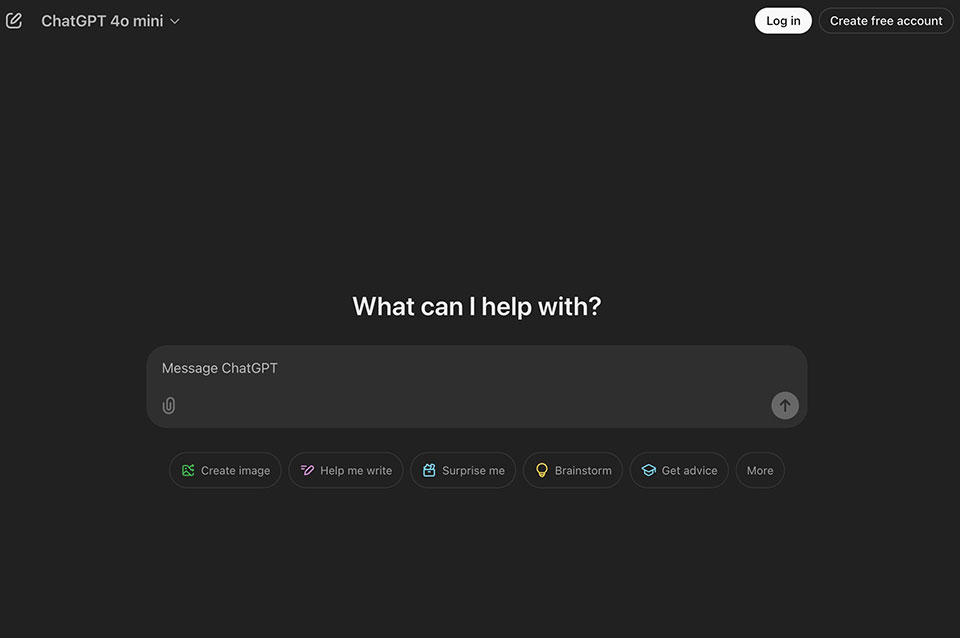
Cost: Freemium (Free limited version + Paid versions)
Screaming Frog is a powerful website crawler designed to scan entire websites and provide key details like title tags, meta descriptions, alt tags, and more. It’s an essential auditing tool for SEO professionals. While Screaming Frog isn’t inherently an AI tool, its recent updates allow integration with Chat-GPT and other LLMs (Large Language Models), transforming it into a more AI-driven solution.
With these integrations, you can leverage AI to generate meta descriptions, rewrite title tags and headers, perform sentiment analysis on your website’s pages, develop internal linking plans, and more at scale. The tool is a little more complex to set up, but once you get the hang of it, the possibilities are pretty powerful.
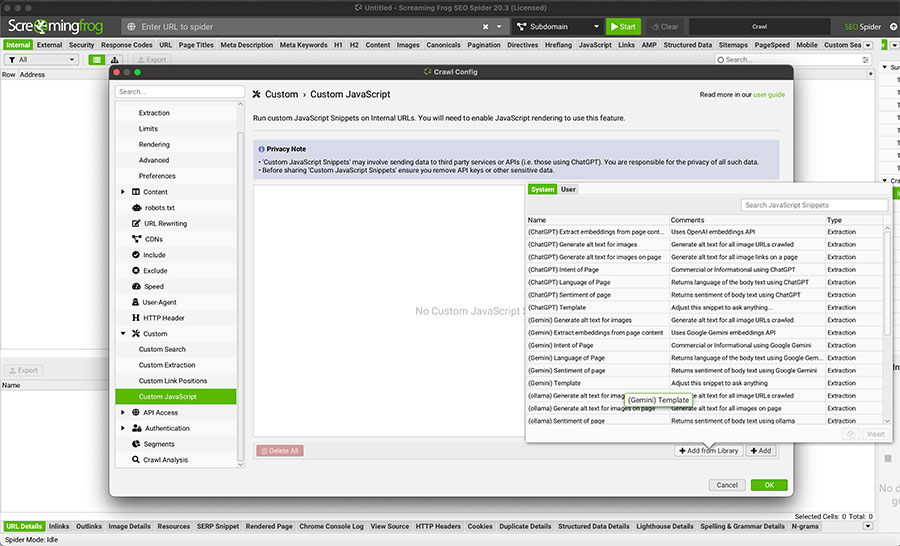
Cost: Paid
Surfer SEO is a content optimization tool specifically designed to help create copy that ranks well in Google Search. While tools like Chat-GPT can generate content from scratch, Surfer SEO focuses on helping you optimize content for maximum SEO performance. Think of it as a more streamlined version of Chat-GPT with a strong emphasis on search rankings and content development.
It takes into account factors like the country you’re writing for, the platform (mobile, desktop, etc.), and the tone you want for your content. Surfer also includes anti-AI detection tools, making it harder for companies to spot AI-generated content.
You can start by typing in a keyword and have Surfer SEO generate a content outline or even full content based on that keyword. From there, you can adjust the tone and make other tweaks or edits. Surfer will also provide valuable insights into which keywords to target, what the average word count should be, etc, based on a SERP analysis as well as any competitor content found there, so you can create content that performs well.
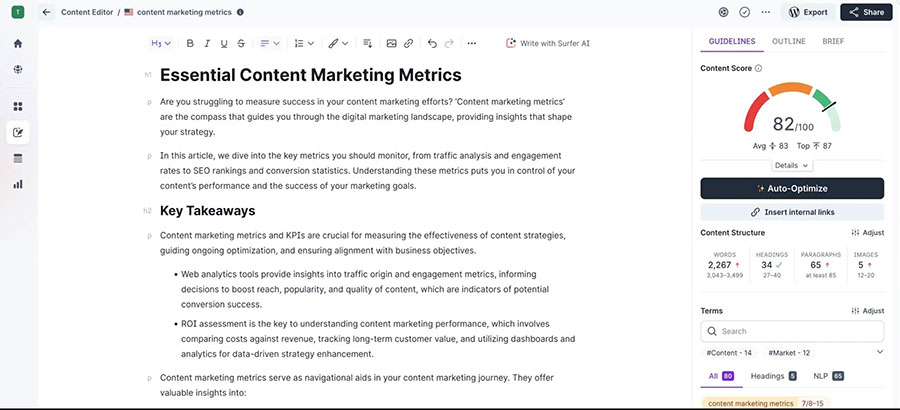
Cost: Paid
SEMrush is another excellent tool for SEO experts. It’s known for its robust keyword research and tracking capabilities, domain and backlink analysis, and comprehensive site auditing tools. It’s been around for a while, so you may be wondering how it qualifies as an AI tool.
Well, SEMrush has recently stepped up its AI game, rolling out AI features like AI-powered Content Marketing tools including the SEO Writing Assistant, somewhat similar to Surfer SEO, and the SEO Content Template Generator which can help you create hub and spoke content.
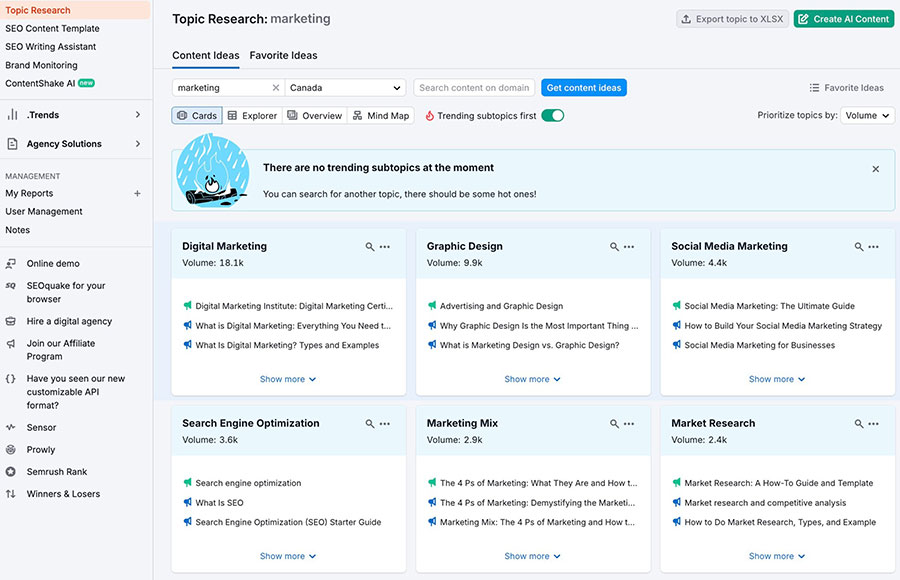
In addition, they’ve introduced AI-driven summaries that provide actionable insights for the accounts you’re tracking under the Project tab called SEMRush Co-pilot.
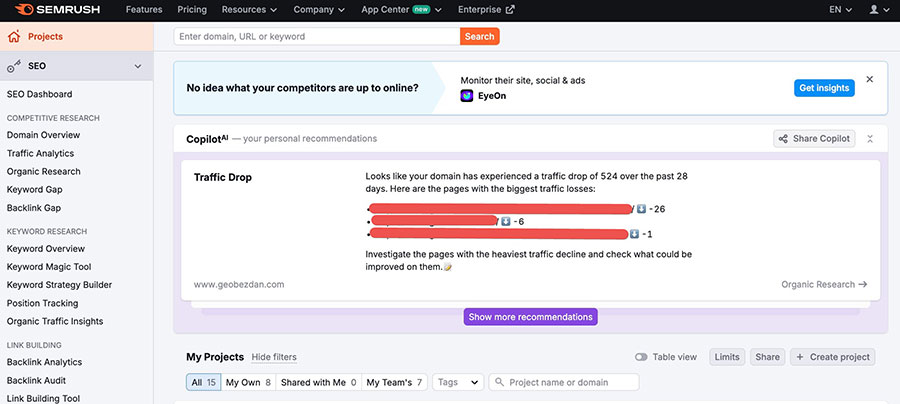
Another cool AI feature is that SEMrush can now use your website’s domain to assess keyword difficulty and compare it against your competitors. This goes beyond just the generic keyword difficulty metrics you normally receive by obtaining more domain-specific insights.
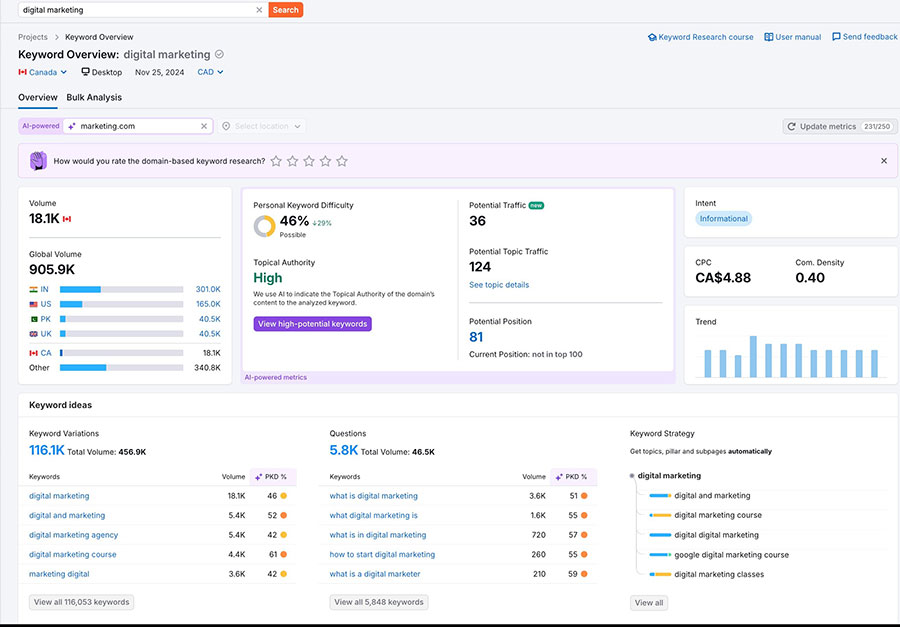
Cost: Paid (Pricing varies based on website size and needs)
Alli AI uses AI-driven analysis to identify and fix technical SEO issues across websites at scale. It automates a variety of on-page SEO tasks, such as optimizing meta tags, enhancing internal linking, and improving overall site structure to boost performance. The tool is designed to help websites stay SEO-friendly with minimal manual intervention by automating the majority of the optimization processes. It provides real-time updates to your site, ensuring ongoing SEO improvements with AI monitoring and adjustments.
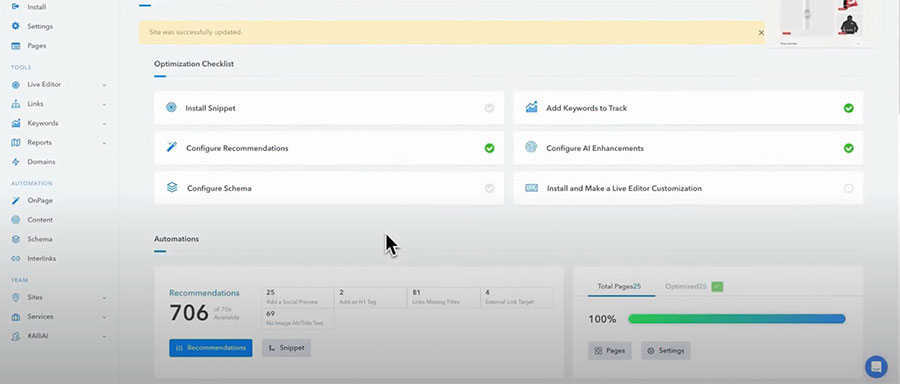
The AI landscape is constantly evolving, with new tools emerging all the time that can transform how we approach SEO. That’s why we always recommend exploring a variety of tools to find the ones that best suit your needs as a marketer and align with your business objectives. The challenge isn’t finding a tool for everything—it’s finding the right tool for you. That’s why we were sure to include SEO tools you may already be familiar with that have integrated AI into their offerings in our list. For more insights on integrating AI with SEO, check out our article on How to Integrate AI into Your SEO.
Need help getting started with your website’s SEO? Work with a team that stays on top of the latest developments in SEO while still bringing a personalized, human touch to your marketing.